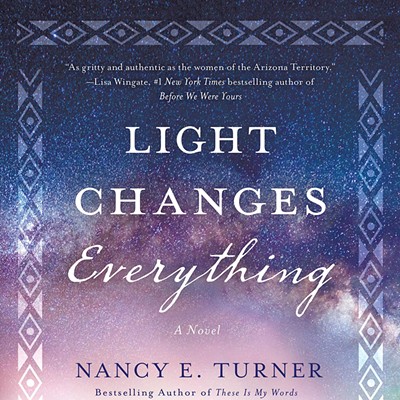Ethan, in fact, has been dubbed by his creator "the worst ballplayer in the history of Clam Island, Washington," and he hates playing for his little league team, Ruth's Fluff 'n' Fold Roosters. The other members of his team are less eloquent, nicknaming him "dog boy" because he's always hoping for a walk.
So Ethan is recruited to save our universe, as well as the worlds of other dimensions, by Ringfinger Brown, a mysterious old Negro League ballplayer; and by Cutbelly, a 765-year-old "werefox" with a penchant for puffing on a pipe filled with garden-variety weeds (as opposed to "weed").
Ethan's compatriots on his quest--which includes the task of rescuing his captive father, a designer of "lighter-than-air dirigibles"--are teammates Jennifer T. Rideout, a no-nonsense tomboy, and Thor Wignutt, who imagines himself a sophisticated robot named TW03.
During the odyssey through other dimensions, Ethan encounters a dizzying variety of mythological beings including familiar ones such as Coyote, Sasquatch and La Llorona, as well as frost giants, shaggurts, stormbangers, mushgoblins, ferishers and shadows that think and have personalities.
Chabon borrows not only from Native-American mythology but from Norse, Old West and Mexican-American folklore, as well as from the sometimes-eccentric history of baseball. This is important, because Ethan, Jennifer T. and Thor must cobble together a team from these unlikely folkloric sources to play a series of games that will battle back the apocalypse.
The 39-year-old Chabon is the workaholic literary darling whose Wonder Boys became an acclaimed movie starring Michael Douglas and Tobey Maguire and whose wonderful The Amazing Adventures of Kavalier and Clay deservedly won the 2001 Pulitzer Prize for fiction.
He's adapting Kavalier and Clay for the screen; Sydney Pollack has been attached as director. That novel reportedly will spawn two comic-book adaptations. Chabon also is writing the screenplay for the 2004 sequel to this year's blockbuster Spider-Man.
Chabon already has signed on for two Summerland sequels, and it was recently announced that the book will become a movie for Miramax Films, which happens to be the parent company of this novel's publisher.
Whether Summerland is actually a children's book is debatable. More appropriately, it's imaginative children's novel for adults, not unlike works by Roald Dahl, C.S. Lewis, J.K. Rowling and Philip Pullman. Designating it a work for kids allows Chabon to indulge in the unguarded sentimentality that, when employed in adult literature, so often inspires critical barbs.
Summerland is 500 pages long, which might have been considered a daunting length for young readers before Rowling's 700-plus-page Harry Potter and the Goblet of Fire proved otherwise. It also leaves lots of room for Chabon's post-modern reinvention of folklore, his rich appreciation for nostalgia and a complex exploration of baseball as metaphor for life.
But equally important are Ethan's struggle with personal failure and his relationship with his recently widowed dad. Summerland also is as much about character motivation and emotional growth as one could imagine of a rip-roaring, fantasy epic.
Within the first three pages of story, Chabon begins exercising his omniscient-narrator muscles by burrowing into the characters, rather than simply observing them or their actions.
"I hate it," Ethan says of baseball to his father, and the author notes in passing that Ethan knows it's a cruel thing to say because the boy's dad so loves the game. The brief statement seems so innocuous it might as well be parenthetical, but it will cause some readers to flash back on the various times that they as children--for whatever reasons--uttered casually mean remarks to their parents.
Mr. Feld, for his part, enjoys his perception of his son as talkative, in marked contrast to himself. But Chabon subtly reveals how their relationship with each other differs from those they carry on with others: "Mr. Feld didn't know that Ethan was only ever talkative around him."
Moments such as these are as insightful and moving as anything in the works of contemporary middle-class philosophers Joyce Carol Oates or John Updike. And it's a kick finding such introspection woven into an outcast innocent's heroic quest to stave off the apocalypse.








